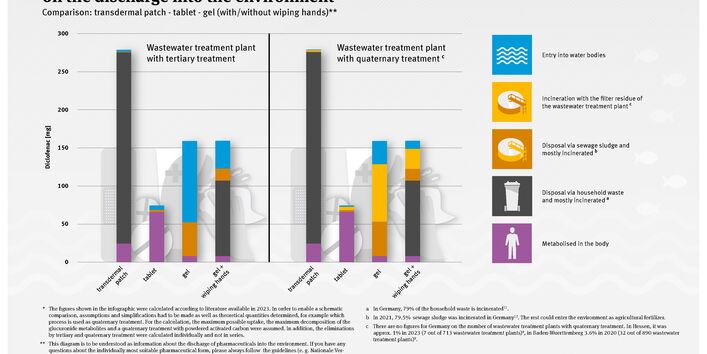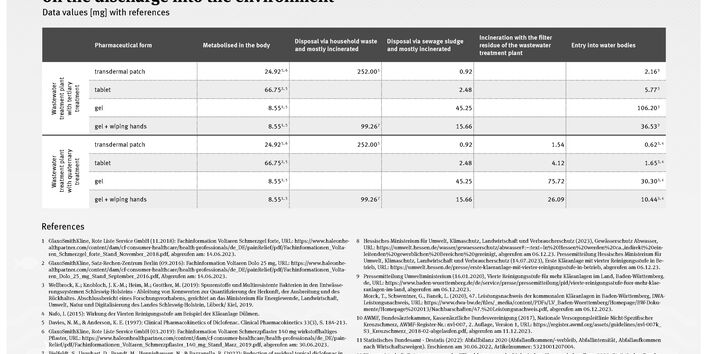Pharmacists stand out for their pharmacological and pharmaceutical-technological expertise. For environmental protection, it is crucial that they apply this knowledge in collaboration with the medical profession.
For example, it would be beneficial if pharmacists could, when possible, offer advice on environmentally friendlier pharmaceuticals when dispensing over-the-counter medicines. Some products may be more readily biodegradable in sewage treatment plants and the environment or have a lower toxic potential.
A publicly accessible environmental information and classification system for pharmaceutical substances would be helpful in this regard. In Sweden, the Janusinfo portal (in English) serves this purpose. This database helps identify more environmentally friendly pharmaceutical alternatives and provides information on the environmental impact of specific pharmaceutical substances.
Currently, Germany lacks such a database. But in a recent project the feasibility analysis for the implementation of an environmental information and classification system in Germany („Arzneimittelindex Umwelt“) was investigated. However, environmental risk assessments can be found in the professional drug information available through pharmacy software. Sections 5.3 (Preclinical Safety Data) and 6.6 (Disposal Information) indicate whether a pharmaceutical substance has been classified as environmentally harmful.
Additionally, the choice of application form can significantly influence environmental pollution. Pharmacists can recommend alternative dosage forms that reduce the amount of active substances released into the environment. For instance, medicated patches instead of creams or ointments, or oral rather than topical formulations, may offer a more environmentally friendly option.
Further information: Prescribing Drugs: Environmental aspects
Promoting collaboration and dialogue within the medical and pharmaceutical community is crucial for fostering a shared environmental awareness. Pharmacists should actively engage in discussions about the environmental impact of prescribed pharmaceutical substances, application forms, and packaging sizes. Exchanging experiences can help identify best practices and develop sustainable solutions together, ensuring that environmental considerations become an integral part of pharmaceutical care.




